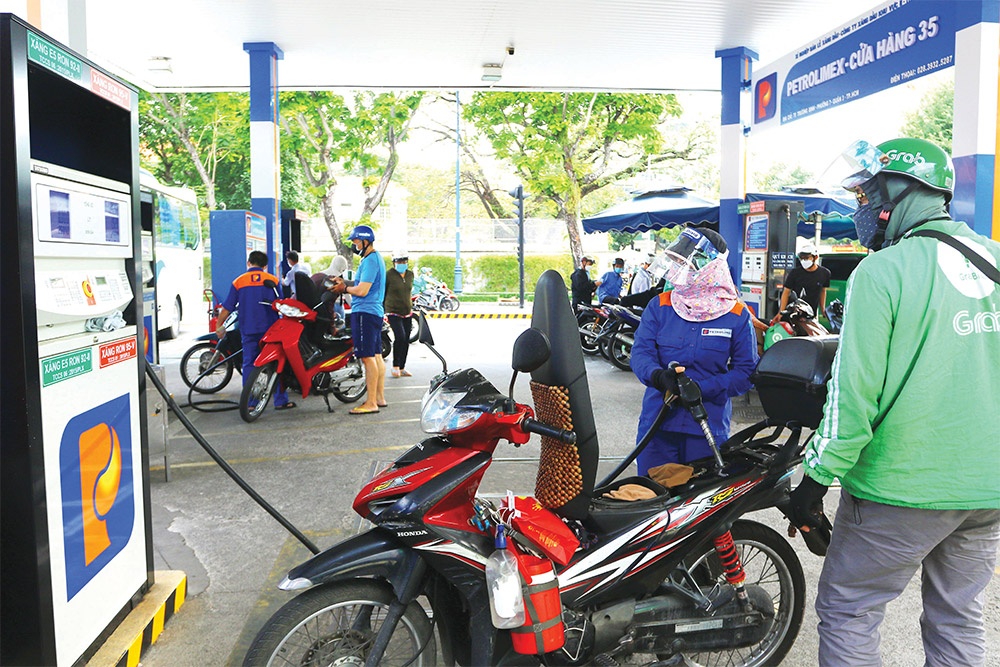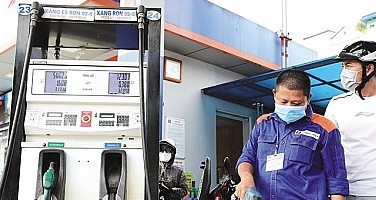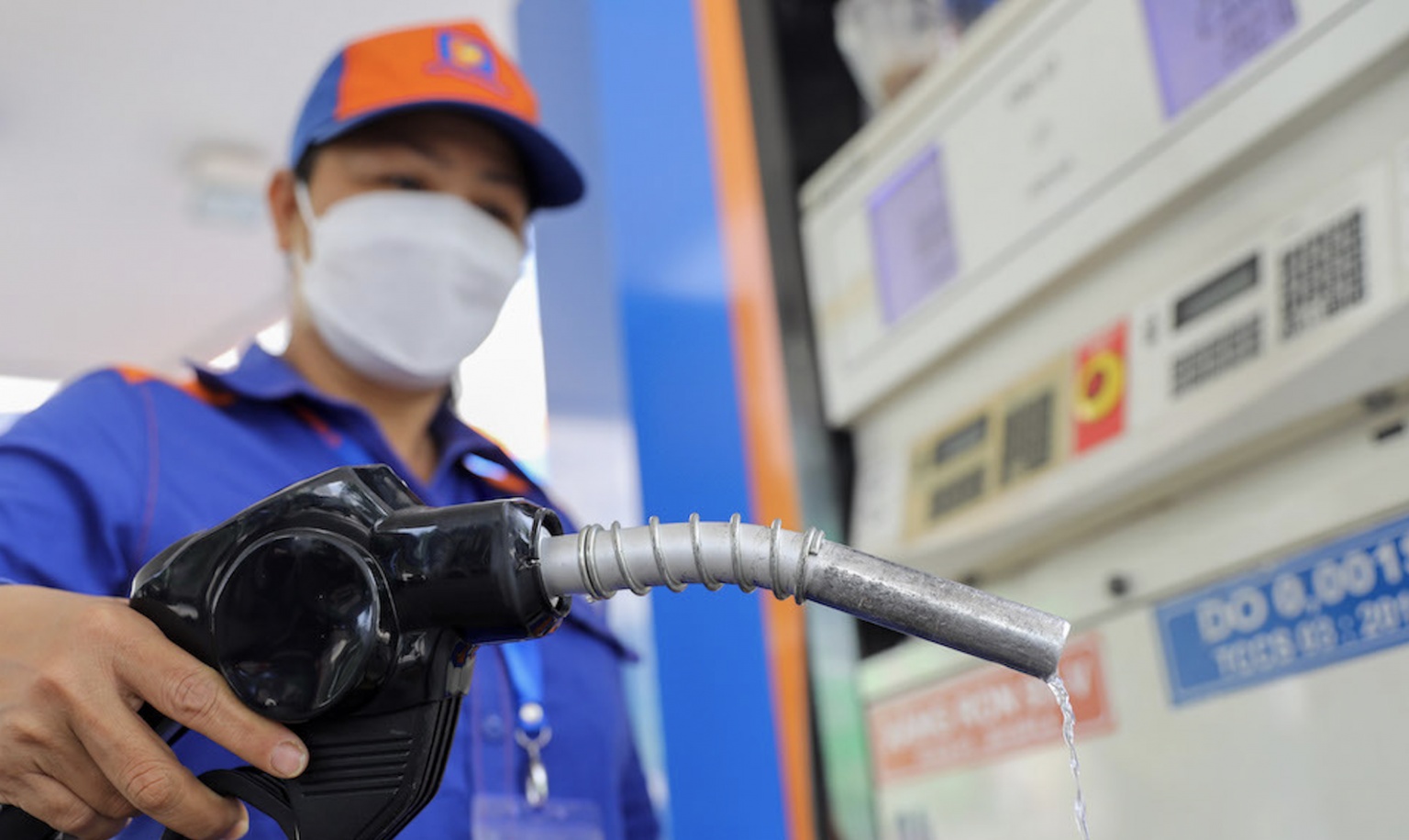Vietnam moves into gear to ensure petroleum supply
The Ministry of Industry and Trade (MoIT) estimates that Vietnam’s fuel demand will reach 28.42 million cubic metres in 2024. According to the Vietnam Petroleum Association, petroleum demand shrunk in 2023 after Vietnam’s economic growth slowed to 5.05 per cent last year.
 |
| Companies must operate within the market rules while still avoiding disruption, photo Le Toan |
However, domestic petroleum demand is forecast to increase dramatically in 2024 as prices and supply are affected by complex fluctuations in the global market, including unpredictable supply and prices of strategic materials, as well as geopolitical conflict.
With the disruption and price hike concerns, the prime minister has sent an official document requesting the MoIT and relevant ministries to implement solutions to avoid supply shortages in any situation.
Accordingly, the ministries will direct large petroleum traders, businesses, and petroleum retail stores across the country to formulate feasible business plans, ensuring sufficient stock to meet market demand. They should allocate sufficient manpower to meet demand during the Lunar New Year.
Minister of Industry and Trade Nguyen Hong Dien said, “It is important we plan beyond annual demand cycles to cover monthly and quarterly intervals as well. This plan should be adjusted flexibly. Key petroleum enterprises should ensure the strict implementation of the allocated total minimum petroleum supply with contingency plans.”
In any unusual cases, businesses should proactively report and propose policy mechanisms or situational solutions to state management agencies, Dien added.
“Petroleum is an important strategic material that has a great impact on the consumer price index and macroeconomic stability. Therefore, it is vital to operate according to market mechanisms while still ensuring the state’s role in regulating this commodity to maintain supply and avoid disruption,” the minister added.
Many companies are gearing up to ensure a stable supply of petroleum in 2024. MoIT has allocated Vietnam National Petroleum Group (Petrolimex) to source 1.5 million cu.m per tonne of petrol. This figure is up 12 per cent compared to Petrolimex’s sales output in 2023. For diesel products assigned by the MoIT, the increase will be 22 per cent compared to the group’s sales output in 2023.
Tran Ngoc Nam, deputy general director of Petrolimex, said, “This month the group has secured purchasing sources from two factories in Vietnam as well as exports, an increase of about 10 per cent compared to the average assigned output. With early preparation and close collaboration with two local oil refineries and trading partners, the group is committed to fulfilling its responsibility. The group develops purchasing plans to ensure an effective business plan and supply.”
Likewise, PetroVietnam will ensure petroleum supply equal to 2023 when its supply exceeds the proposed target. Meanwhile, Military Petroleum Corporation is assigned a 2024 quota that is 30 per cent higher than that of 2023.
In 2023, Nghi Son Refinery and Petrochemical and Binh Son Refining and Petrochemical recorded the output exceeding its designed capacity, contributing to the stable supply for the local market. However, there were some sporadic shortages across the country. Some key enterprises have not strictly complied with the allocated total minimum petroleum supply as well as other regulations such as warehouses, yards, minimum trade reserves, compliance with tax obligations, or management and use of stabilisation funds.
Therefore, the MoIT proposed that the Ministry of Finance, the State Bank of Vietnam, and other ministries coordinate to regulate petroleum, proposing solutions to avoid disruptions for the rest of the year.
 | MoIT and MoF discuss seven petroleum market issues The Ministry of Industry and Trade (MoIT) has suggested seven provisions to secure the petroleum supply, including an increase in the national petroleum reserve from nine to fifteen days of net imports. |
 | Over 250 petitions submitted to authorities on fragility of petroleum regulations The petitions concern the alteration of petroleum business restrictions in decrees No.83/2014/ND-CP and No.95/2021/NQ-CP, resulting in losses for retail establishments. |
What the stars mean:
★ Poor ★ ★ Promising ★★★ Good ★★★★ Very good ★★★★★ Exceptional
Related Contents
Latest News
More News
- Bac Ai Pumped Storage Hydropower Plant to enter peak construction phase (January 27, 2026 | 08:00)
- ASEAN could scale up sustainable aviation fuel by 2050 (January 24, 2026 | 10:19)
- 64,000 hectares of sea allocated for offshore wind surveys (January 22, 2026 | 20:23)
- EVN secures financing for Quang Trach II LNG power plant (January 17, 2026 | 15:55)
- PC1 teams up with DENZAI on regional wind projects (January 16, 2026 | 21:18)
- Innovation and ESG practices drive green transition in the digital era (January 16, 2026 | 16:51)
- Bac Ai hydropower works stay on track despite holiday period (January 16, 2026 | 16:19)
- Fugro extends MoU with PTSC G&S to support offshore wind growth (January 14, 2026 | 15:59)
- Pacifico Energy starts commercial operations at Sunpro Wind Farm in Mekong Delta (January 12, 2026 | 14:01)
- Honda launches electric two-wheeler, expands charging infrastructure (January 12, 2026 | 14:00)

 Tag:
Tag:


















 Mobile Version
Mobile Version